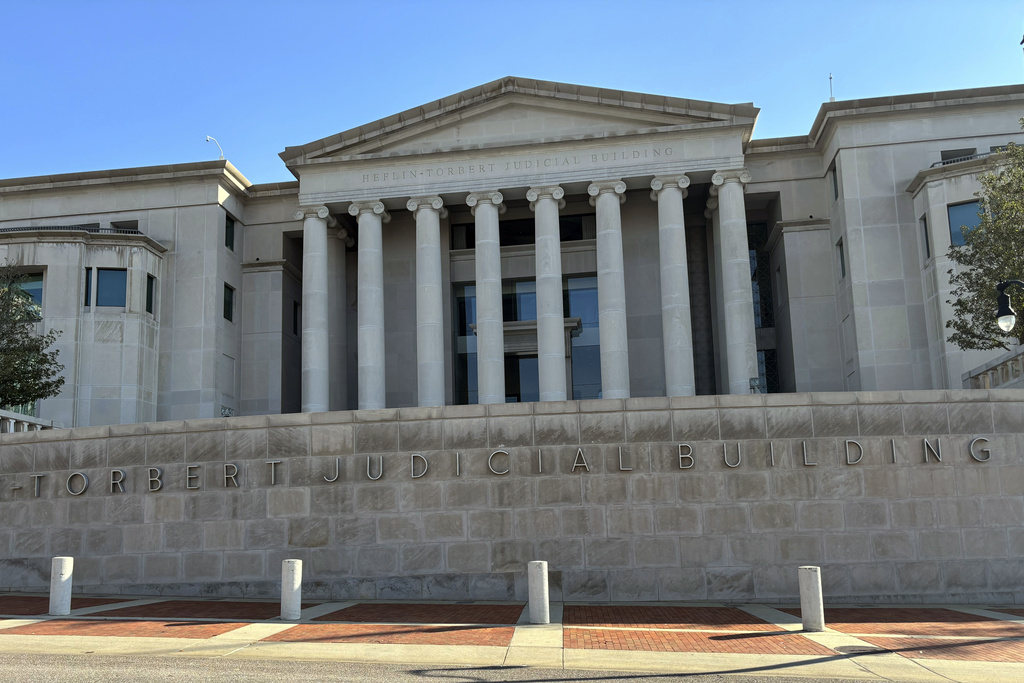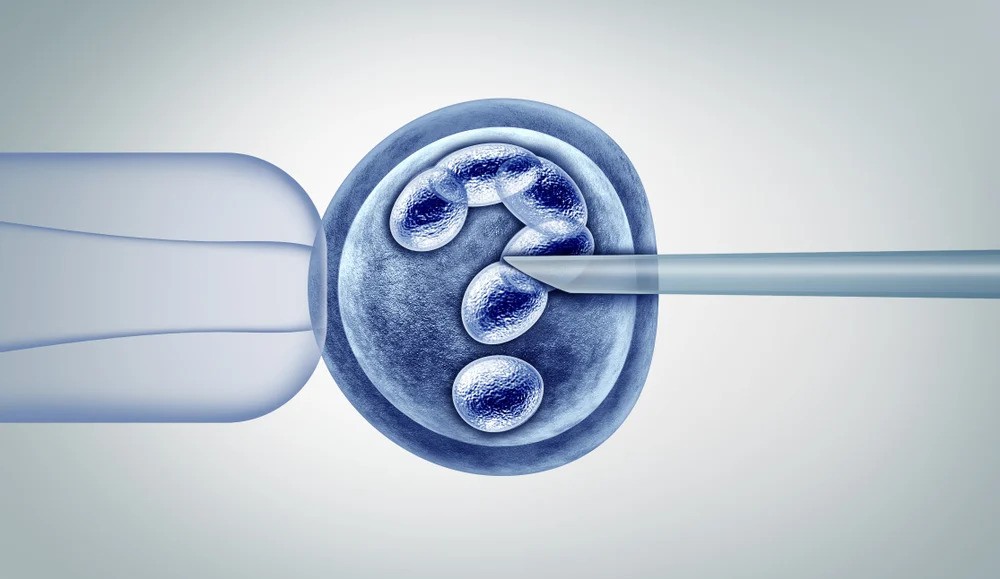Alabama Supreme Court Decision Adds To Legal Uncertainty Regarding IVF
Alabama Supreme Court decision adds to legal uncertainty regarding IVF. This decision has cast uncertainty over the future of in vitro fertilization (IVF) treatments in the state, prompting numerous healthcare providers to halt the service.
Author:Suleman ShahReviewer:Han JuFeb 23, 2024298 Shares12.4K Views

Alabama Supreme Court decision adds to legal uncertainty regarding IVF. A recent ruling by the Alabama Supreme Court, which deems frozen embryos as children and suggests holding individuals accountable for their accidental destruction, has ignited a fresh debate surrounding reproductive medicine in the United States. This decision has cast uncertainty over the future of in vitro fertilization(IVF) treatments in the state, prompting numerous healthcare providers to halt the service.
Healthcare professionals and reproductive rights advocacy organizations have voiced concerns about the potential adverse effects of this ruling on fertility treatments not only in Alabama but also across the country. While some anti-abortion groups have praised the ruling, asserting that embryos merit increased legal safeguards, othersworry about its broader implications.
Lawsuit Background And Court Ruling
The lawsuit originated from three couples whose embryos were lost at a fertility clinic in 2020, leading to a wrongful death claim. A visitor accidentally destroyed the embryos while handling them in the storage area.
The couples pursued legal action against the Center for Reproductive Medicine and the Mobile Infirmary Association using the state's Wrongful Death of a Minor Act. However, this law only covered fetuses and didn't explicitly include embryos resulting from IVF.
Initially, a lower court dismissed the case, stating that embryos didn't qualify as persons or children, thus halting the wrongful death lawsuit. However, the Alabama Supreme Court took a different stance, ruling in favor of the couples.
They declared that frozen embryos were to be considered "children" under the law. According to the court, the wrongful death statute encompassed "all unborn children, regardless of their location."
Chief Justice Tom Parker, concurring with the majority opinion, emphasized the sanctity of life, stating, "Even before birth, all human beings have the image of God, and their lives cannot be destroyed without effacing his glory."
Implications For Fertility Patients In Alabama
The court ruling doesn't prohibit or limit IVF, and the couples involved in the case specifically pursued the procedure. However, the decision might create uncertainty regarding the legality of certain aspects of IVF under Alabama law, according to experts.
If embryos are classified as persons, it could lead to inquiries about clinics' permissible use and storage practices. Elisabeth Smith, the director of state policy at the Center for Reproductive Rights, emphasized, "Not all [IVF] embryos are used, nor can they be."
"To enact legislation granting legal personhood to embryos could have disastrous consequences for the use of IVF - a sciencemany people rely on to build their families."
Uncertainty about the law might also affect patients directly, as they may become concerned about the continued availability and legality of the procedure.
“„The significance of this decision impacts all Alabamians and will likely lead to fewer babies - children, grandchildren, nieces, nephews, and cousins - as fertility options become limited for those who want to have a family.- The Medical Association of the State of Alabama
Connection With The US Abortion Debate
Following the US Supreme Court's decision in 2022 to overturn a nationwide right to abortion, individual states gained the authority to enact their laws regarding the matter. Since the ruling, Democratic-led states have moved to broaden access to abortion, while Republican-led states have imposed tighter restrictions. Alabama, which already prohibits abortion across all stages of pregnancy, stands firm with its total ban on the procedure.
The White House called the Alabama ruling "exactly the type of chaos that we expected when the Supreme Court overturned Roe vWade and paved the way for politicians to dictate some of the most personal decisions families can make".
Abortion opponents are closely monitoring this ruling, as the determination of when an embryo or fetus attains legal personhood influences many state abortion regulations. The Alliance Defending Freedom, a conservative Christian legal organization, hailed the Alabama ruling as a "tremendous victory for life."
“„No matter the circumstances, all human life is valuable from the moment of conception. We are grateful the Court correctly found that Alabama law recognizes this fundamental truth.- Denise Burke
Some anti-abortion activists expressed that in their perspective, the ethical considerations surrounding in vitro fertilization (IVF) are not as straightforward as those related to terminating a pregnancy.
Eric Johnston, a lawyer involved in crafting Alabama's constitutional stance on abortion in 2018, stated to reporters, "By and large the pro-life community would say that fertilized eggs are in need of protection."
However, Johnston acknowledged the existence of couples who hold anti-abortion beliefs yet use IVF to conceive children. He emphasized that he would not pass judgment on them.
"It's a dilemma, and a dilemma is something where you don't have a satisfactory answer," he added.
What Is IVF?
In vitro fertilization (IVF) presents a potential solution for women encountering difficulties in conceiving. According to the Centers for Disease Control and Prevention (CDC), approximately 2% of pregnancies in the US result from IVF.
The procedure involves the retrieval of a woman's eggs from her ovaries using a needle, which is then combined with sperm from a man in a laboratory. After fertilization, the resulting embryo is transferred into the woman's uterus, with the possibility of establishing a pregnancy.
However, IVF success is not guaranteed, often requiring multiple attempts to achieve a successful pregnancy. In certain instances, such as the Alabama trial mentioned, fertilized embryos are cryopreserved and stored in tanks filled with liquid nitrogen. Experts note that these embryos can be preserved for up to a decade.
Potential Developments In Other States
US states frequently replicate each other's legislation, and this trend is evident in the realm of abortion policy. States often take cues from one another regarding laws or policies that have successfully navigated legislatures or withstood legal challenges.
While the Alabama ruling is binding only within the state, experts speculate that other states may witness legislative efforts or legal actions aimed at advancing the notion that frozen embryos should be legally recognized as children or individuals.
However, it seems unlikely that this specific case will reach the US Supreme Court, unlike the abortion issue, because the Alabama ruling originated in state court and pertains to the interpretation of state, rather than federal, law.
Impact Of The Ruling On US Politics
Since the US Supreme Court overturned Roe v. Wade, which guaranteed the constitutional right to abortion up to about 23-25 weeks of fetal viability, Democrats have found success by championing the right to abortion.
Following the Alabama ruling, Democratic candidates may choose to advocate for preserving access to fertility treatments nationwide. On the other hand, Republican politicians often align themselves with religious conservatives who advocate for restrictions or bans on abortion in the US.
Republican presidential hopeful Nikki Haley, the main contender against Donald Trump for the party's nomination, initially voiced support for the Alabama Supreme Court's decision. However, she later attempted to clarify her stance, stating to reporters that while she didn't explicitly endorse the ruling, she agreed with the perspective that an embryo is considered an unborn baby.

Suleman Shah
Author
Suleman Shah is a researcher and freelance writer. As a researcher, he has worked with MNS University of Agriculture, Multan (Pakistan) and Texas A & M University (USA). He regularly writes science articles and blogs for science news website immersse.com and open access publishers OA Publishing London and Scientific Times. He loves to keep himself updated on scientific developments and convert these developments into everyday language to update the readers about the developments in the scientific era. His primary research focus is Plant sciences, and he contributed to this field by publishing his research in scientific journals and presenting his work at many Conferences.
Shah graduated from the University of Agriculture Faisalabad (Pakistan) and started his professional carrier with Jaffer Agro Services and later with the Agriculture Department of the Government of Pakistan. His research interest compelled and attracted him to proceed with his carrier in Plant sciences research. So, he started his Ph.D. in Soil Science at MNS University of Agriculture Multan (Pakistan). Later, he started working as a visiting scholar with Texas A&M University (USA).
Shah’s experience with big Open Excess publishers like Springers, Frontiers, MDPI, etc., testified to his belief in Open Access as a barrier-removing mechanism between researchers and the readers of their research. Shah believes that Open Access is revolutionizing the publication process and benefitting research in all fields.

Han Ju
Reviewer
Hello! I'm Han Ju, the heart behind World Wide Journals. My life is a unique tapestry woven from the threads of news, spirituality, and science, enriched by melodies from my guitar. Raised amidst tales of the ancient and the arcane, I developed a keen eye for the stories that truly matter. Through my work, I seek to bridge the seen with the unseen, marrying the rigor of science with the depth of spirituality.
Each article at World Wide Journals is a piece of this ongoing quest, blending analysis with personal reflection. Whether exploring quantum frontiers or strumming chords under the stars, my aim is to inspire and provoke thought, inviting you into a world where every discovery is a note in the grand symphony of existence.
Welcome aboard this journey of insight and exploration, where curiosity leads and music guides.
Latest Articles
Popular Articles
